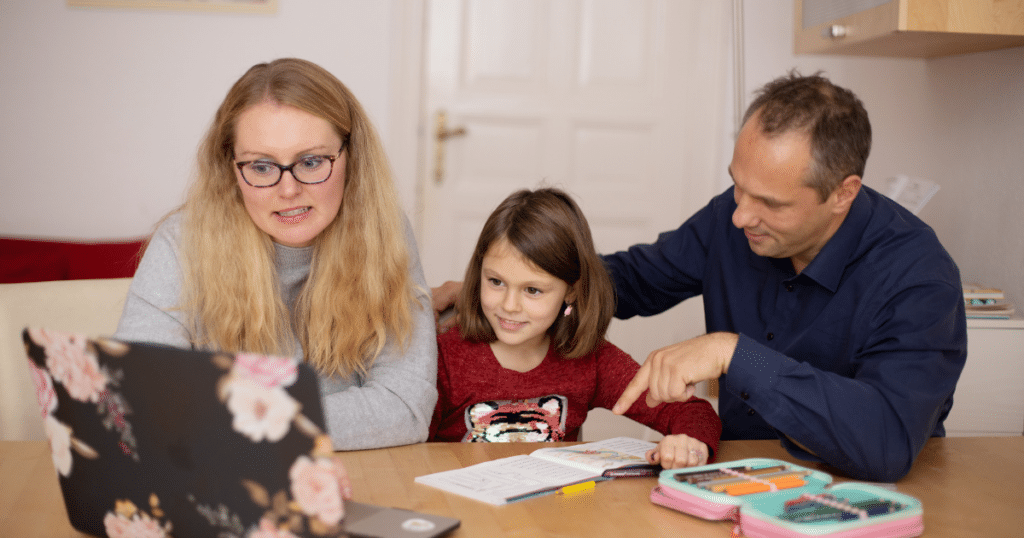Good mental health and well-being can help a teenager make the most of life’s opportunities and pave the way for a bright future. However, adolescence is a time of emotional and physical change, which can affect how teenagers think, feel, and behave. For this reason, it can help to talk to your teen, offering them supportive conversations about their mental health.
We all experience stress differently, so while some teens may express how they feel in outward ways, others may bottle up their emotions. Having regular conversations about mental health can help – you don’t have to wait until you see signs of distress to talk to a teen about their well-being.
The steps in this article can help you talk to a teen about their mental health in empathic, supportive ways. As a note, you may not be able to force a teen to talk about their well-being. Try not to take it personally if they don’t – some teenagers may feel more comfortable talking to a peer rather than an adult. However, even if they don’t want to speak about their mental health right now, this doesn’t mean they won’t want to in the future. You can still support them by being available and understanding.
Steps for Talking to Teens About Their Mental Health
1. Choose the Right Time and Place
The “perfect” time and place might not exist, but it is important to choose a moment when they have the time to talk. For example, choosing a moment when they’re about to meet up with friends might not be ideal as they may be in a rush or feel distracted. Also, it’s good to choose an environment in which you won’t be interrupted or overheard as it could make a teen feel less willing to open up and share due to fear of being judged. You could choose somewhere you both feel comfortable or ask whether they want to go on an activity such as a walk.
Alternatively, if either of you find the idea of a face-to-face conversation too overwhelming, you could choose to talk on the phone or send an email, letter, or text.
2. Prepare For the Conversation in Advance
If you’re concerned about a teen’s mental health, it can help to practice what you want to say ahead of time. For instance, you could create “script” lines to use in case your mind goes blank or if you’re afraid of saying the wrong thing. Script lines could sound like:
- “I don’t want to assume anything, but you don’t seem like yourself recently and I just wanted to let you know I’m here for you if you want to talk.”
- “I know it can be hard to put feelings into words sometimes, but if you want to talk about how you feel I’m here. If you don’t, that’s OK – I’ll be here if you ever change your mind.”
- “You don’t have to figure this out by yourself. Would it help to speak to a therapist about what you’re going through?”
You could also consult a professional or helpline for advice on how to talk to a teen about their mental health.
3. Start Small
Starting a conversation with a teen about their mental health can feel a little daunting, as though you’re diving off a cliff edge into the sea without first knowing what the currents are like. If you’re unsure how to start the conversation, remember that you don’t have to begin with the “big” questions – start small and build up. For example, you could simply ask “How are you doing lately?” or say “I’ve noticed you’ve not really been yourself. Is everything OK?”
Once you have started by asking the small questions, you can allow them to steer the direction of the conversation. If they’re willing to open up in the moment, you can ask deeper questions about their well-being. However, if they’re hesitant to share, you can broach the conversation when they seem more willing to talk.
4. Actively Listen

If a teen chooses to open up to you, demonstrate that you’re listening to them and taking their words seriously. Don’t interrupt them, and avoid saying anything that could come across as judgmental, as it could cause a young person to close up. You can show them that you’re actively listening by keeping natural eye contact (not too much), maintaining relaxed but attentive body language, and making sure the space is distraction-free
You can also ask open-ended questions that tie in with what they’re saying and will encourage them to continue sharing, such as “I’m sorry, that must have been difficult. How did it make you feel?”
5. Validate Their Feelings
Teenagers often feel misunderstood and as though no one else could understand what they’re going through. It’s good to acknowledge and validate what a teen is saying to you if they’re talking about their mental health, as it lets them know that what they’re saying is important. For example, you could say something like, “It’s OK to feel that way, I understand why you would.” Then, you can reassure them that they’ve done the right thing by opening up to you.
6. Don’t Try to Fill the Gaps
It’s normal to try to fill the gaps in conversation by prompting the other person, offering solutions, or making small talk. However, silences allow a teen to mull over what they’re talking about and whether there’s anything else they want to say. These moments also give them the space to consider their feelings and better understand them, so it’s good to maintain engaged body language.
7. Repeat Their Words Back to Them
Paraphrasing can improve your understanding of what a teen is saying and is a great way of demonstrating that you care about their thoughts and feelings. Without putting your own interpretation on what they have been telling you, as this can risk coming across as judgmental, instead try to share what you think they meant. For instance, you could say, “It sounds to me like you’re saying…” After you paraphrase, observe their reactions and body language, as these can let you know whether or not you’re on the right track.
8. Establish Boundaries

Teenagers tend to feel safer when boundaries in relationships are clearly established. You’re not there to be their friend; you’re there to support them, provide guidance, and give unconditional love. Ask yourself (and them) what they need to feel safe and supported and how you can provide these factors for them.
Establishing boundaries with a teen can be easier if you know your own first. Think about when and where you can be available for them and clearly and empathetically communicate this. Doing so can reduce the chance of disappointment or conflict. Plus, once you set boundaries and clearly communicate them, it’s important to maintain consistency; a teen will likely feel safe and more trusting when their environment is predictable.
9. Figure Out How You Want to End the Conversation
Sometimes, knowing how to wrap up a conversation about mental health can be as tricky as figuring out how to initiate it. However, there are a few steps you can follow to make sure a teenager feels comforted and supported moving forward.
First, reassure them that they did the right thing by opening up to you and that you’ll be there to support them moving forward. Next, ask them what they would like from you to help them feel better and whether they think support from a mental health professional would be a good idea. You could also consider whether there’s anything light-hearted and fun you could do together afterward, such as watch a movie or cook something enjoyable.
Additionally, if the conversation doesn’t go as well as you’d like, be patient. It can be difficult for a teen to process their emotions, so reminding them that you’ll be there for them and that it’s OK to feel the way they do can help them feel more secure and safe.
Other Ways to Offer Support for Teen Mental Health
Every teenager is unique, so the ways they might want to be supported may differ. Some may be willing to open up about their mental health; others may prefer a different approach.
If a teen doesn’t want to talk about their mental health, you could support them in practical ways, such as by making sure they participate in activities they enjoy, eat a balanced, healthy diet, and take time to rest. You could also normalize talking about mental health by discussing your own feelings and emotions.
If a teenager finds coping with their mental health difficult, it might be too challenging to handle by yourself. Mission Prep can help. Our team of trained mental health professionals aims to improve each teen’s well-being by providing individualized, empathetic, and effective care – ensuring the best possible outcomes for their future. Contact us today to find out more.
References
- Branje, S., Laursen, B., & Collins, W. A. (2012). Parent–child communication during adolescence. In A. L. Vangelisti (Ed.), The Routledge handbook of family communication (2nd ed., pp. 16). Routledge. https://doi.org/10.4324/9780203848166
- Rickwood, D. J., Deane, F. P., & Wilson, C. J. (2007). When and how do young people seek professional help for mental health problems? Medical Journal of Australia, 187(S7), S35-S39. https://doi.org/10.5694/j.1326-5377.2007.tb01334.x
- Rogers, C., & Farson, R. E. (1957). Active listening (Excerpt). University of Chicago Industrial Relations Center. (Reprinted in R. G. Newman, M. A. Danziger, & M. Cohen [Eds.], Communication in business today, Heath and Company, 1987).
- UNICEF. (n.d.). Conversation starters for talking to teens (14–18 years) about mental health. UNICEF Parenting. Retrieved February 10, 2025, from https://www.unicef.org/parenting/mental-health/conversation-starters-14-18-years
- Wentholt, M. W. G., Meurs, A. E. H., Janssen, C. L. H., Wever, M. M. C., Tollenaar, M. S., Alink, L. R. A., & Elzinga, B. M. (2025). Balancing boundaries: Observed parental autonomy support and psychological control in the context of parent-adolescent interactions and adolescent depression. Journal of Research on Adolescence, 35(1), e70003. https://doi.org/10.1111/jora.70003
- Zapf, H., Boettcher, J., Haukeland, Y., Orm, S., Coslar, S., & Fjermestad, K. (2024). A systematic review of the association between parent-child communication and adolescent mental health. JCPP Advances, 4(2), e12205. https://doi.org/10.1002/jcv2.12205


















